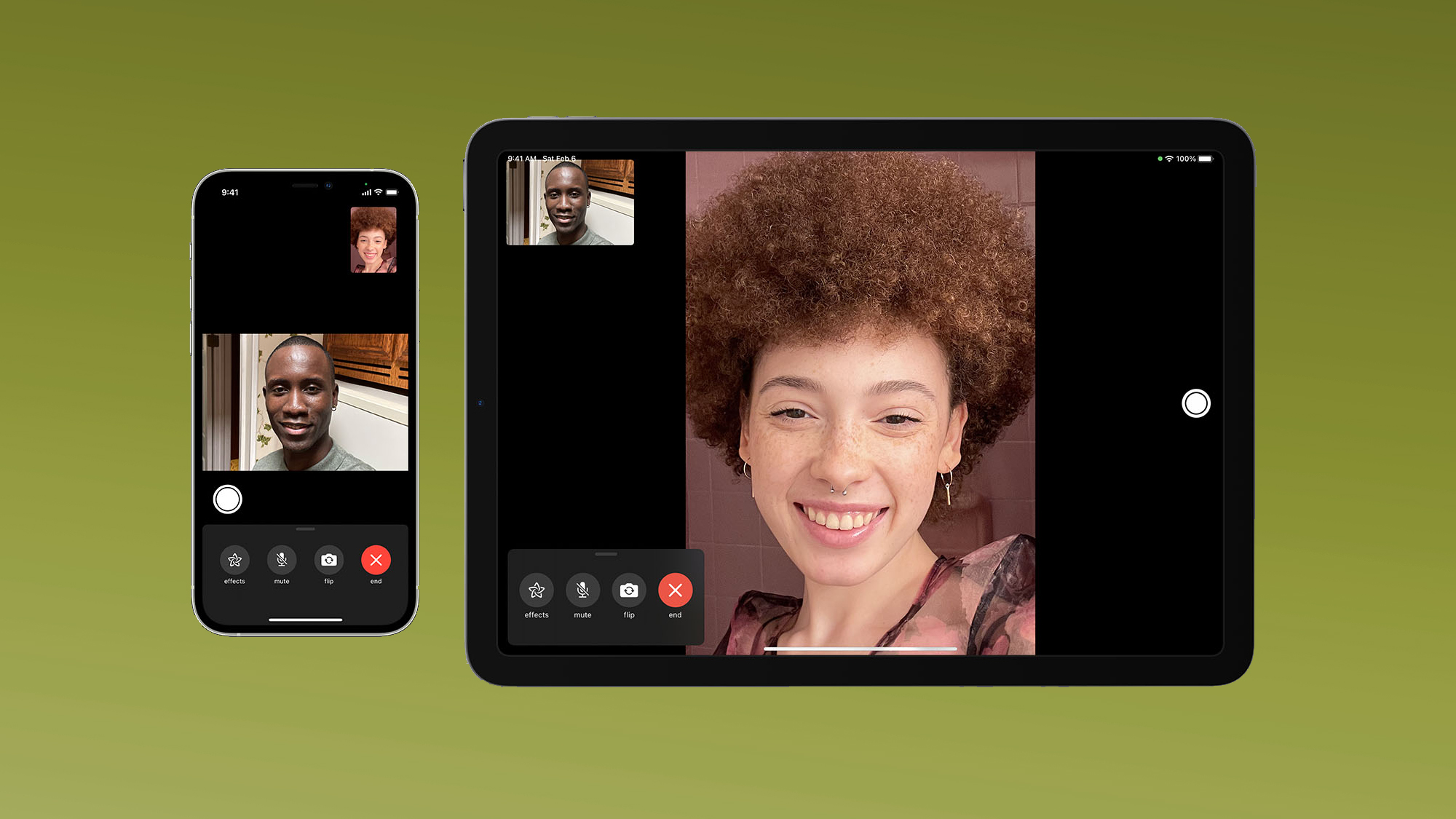FaceTime is coming to Android — but in the worst way possible
No dedicated cross-platform FaceTime app means this whole thing is pointless posturing

During the WWDC 2021 keynote, Apple announced something unthinkable. FaceTime, the company’s proprietary video calling software, will be accessible on non-Apple devices for the first time.
This is a big deal, because Apple’s system lock-in means it’s rare for Apple software to be usable on other devices. But this announcement is somewhat bittersweet, because when look at how FaceTime on Android and Windows actually works, it comes across as lazy posturing on Apple’s part.
- iOS 15: Everything you need to know
- Get up to speed on all the iPhone 13 rumors
- Plus: Apple's FaceTime is coming to Android and Windows — how to use it
The thing about this news is that Apple wasn’t announcing a new FaceTime app for Android and Windows devices. Instead it’s releasing a web interface for its video-calling software, one that Android and Windows users can dial into and take part in. From the sounds of things, non-Apple users will only be able to join pre-scheduled calls via a link, and won’t be able to set calls up themselves.
It’s the absolute bare minimum attempt at making FaceTime cross-platform, and I use the term “cross-platform” very cautiously. But this shouldn’t be a huge surprise because Apple has always been very much against launching its software on other platforms.
Apple’s ecosystem is locked in, and that’s not changing
The fact is that the Windows and Google Play stores each have three Apple-made apps available to download. Android has Apple Music, the Beats companion app, and the very self-serving ‘Move to iOS’, while Windows has iTunes, iCloud and Apple TV.
The Apple TV app is not on Android, but you can get it on a wide range of other streaming devices. This includes the likes of Roku, Google TV with Chromecast, the PS5 and Xbox Series X, in addition to Apple's own Apple TV 4K. The only way to get Apple TV on Android is through the browser right now.
Presumably this move, like bringing Apple Music to Android and browsers, was to help bring in subscriptions to Apple TV Plus. Because there’s no logical reason for keeping the service’s original content exclusive to Apple devices if there’s money to be made elsewhere.
Sign up to get the BEST of Tom's Guide direct to your inbox.
Get instant access to breaking news, the hottest reviews, great deals and helpful tips.
Obviously that’s never been the case with FaceTime or iMessage. Both are free services, and have been one of the main selling points of locking yourself into the Apple ecosystem. Apple itself admitted that, as we found out during the ongoing app store dispute with Epic Games.
Back in 2013, just two years after the launch of iMessage, Apple executives reportedly killed a project that could have brought the service to Android devices. Documents revealed that Craig Federighi SVP of Software and Engineering who is in charge of iOS, and Phil Schiller, who is in charge of the App Store, were very much against the idea.
Federighi was quoted as saying that making iMessage cross-platform would “simply serve to remove [an] obstacle to iPhone families giving their kids Android phones”, as well as claiming that it would be a “horrible idea” to “make it easier for someone to switch away from our platforms."
With that context it’s very easy to figure out why FaceTime has been adapted in this way, and not developed into a full cross-platform app that users could download as they would if they were using an iPhone or Mac.
What Apple should be doing instead
It honestly feels like a half-hearted response to the Epic Games trial, with Apple offering a token version of one of its services on other platforms. Apple can now say “we’re not locking all our software on our own devices, look!”.
To top it off, this new web-based FaceTime will be arriving 18 months after the COVID-19 pandemic made it essential for people and businesses to invest in video calling software. The market is basically saturated at this point, and Apple’s half-hearted attempt to bring FaceTime to non-Apple users feels too little, too late.
If Apple actually cared about bringing non-Apple users into the fold, it would take the plunge and launch FaceTime as its own app on other platforms. Ideally, the app would give Android and Windows users the exact same abilities and freedoms afforded to those on iPhone, iPad, and Mac.
Better still, Apple should be bringing iMessage along for the ride. Video calling is great when needed, but there’s a reason why text messaging is as popular as it is. It’s easier, faster and a heck of a lot more convenient for casual conversation.
If Apple is willing to let users with other devices use FaceTime, and enjoy all the associated privacy-centric privileges it offers, it should be a two-pronged approach. Because there’s little point in allowing users to communicate over secure video channels if they’re otherwise communicating via the very unsecure SMS.
The only alternative for cross-platform groups would be to use a different service entirely, pretty much all of which offer text, voice, and video services. That automatically makes those services more appealing in the long run, and lets people communicate using all those different methods without swapping apps or windows.
But I have absolutely no hope that Apple will be willing to even consider that.
- Everything we know about macOS 12 Monterey

Tom is the Tom's Guide's UK Phones Editor, tackling the latest smartphone news and vocally expressing his opinions about upcoming features or changes. It's long way from his days as editor of Gizmodo UK, when pretty much everything was on the table. He’s usually found trying to squeeze another giant Lego set onto the shelf, draining very large cups of coffee, or complaining about how terrible his Smart TV is.
-
VoleUndermined_82 Really don't get why they're even bothering with an Android solution, especially a half-baked one. Anyone who needs video calls can use Telegram or WhatsApp, which work across any platform. It's not like FaceTime is some next level technology.Reply
